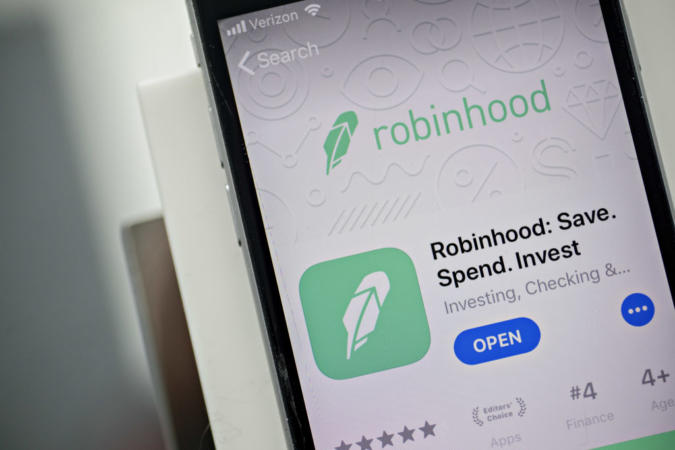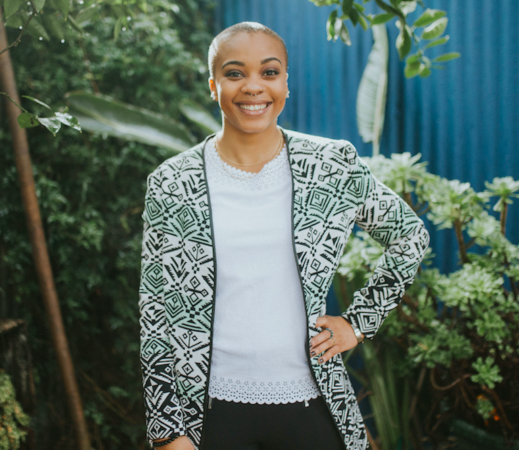Free-trading app Robinhood has been under fire for over a week now after it halted purchases of GameStop stock last week. Though the creators behind the app pride themselves on making a platform for “investing for everyone,” Robinhood brings in a big community of Black millennial investors that may take their money elsewhere following recent antics.
As a quick refresher, a group of young day-to-day traders called WallStreetBets caught wind of hedge fund short sellers in GameStop last month. WallStreetsBetts shared its findings on Reddit and ultimately promoted young investors in its group to invest in GameStop stock, driving the share price up by 134% at one point, CNN reports. This uptick in GameStop’s stock price costs those hedge funds up to $70 billion in losses, according to Reuters.
As a response to this frenzy with GameStop, Robinhood temporarily halted purchases of GameStop stock and a list of other stock on its app last week to manage the risk of a stock market crash. As a brokerage, the company needs to keep a certain amount of capital in its bank account, so Robinhood quickly raised $1 billion from investors in the midst of all of this to stay afloat.
Despite speculation that Robinhood halted purchases to help some hedge funds gain money back, like Citadel, the company’s CEO Vlad Tenev has been trying to dispel those rumors. Robinhood has begun easing up the restrictions this week from its original stoppage.
With all of this turmoil, Black millennial investors aren’t exactly convinced that Robinhood’s app is safe to use and are being vocal about their outrage with recent actions from the company.
Cassandra Cummings, a financial advisor and the founder of The Stocks & Stilettos Society, thinks Black millennials should beware of using Robinhood and purchasing stock on its platform.

“It’s a free app, it’s a relatively new app, but Robinhood makes its money by selling your data or allowing the hedge funds to come in and basically enter their trades before your trades, and that’s how they make money,” Cummings told AfroTech in a phone interview.
Her company boasts an online community of more than 75,000 women investors, and she’s been an active investor for over 20 years. Despite her skepticism of Robinhood, she said she understood why the company’s leaders halted certain purchases on its app during this debacle, though it would have been helpful if they were honest from the start.
“I think going forward, Robinhood really needs to be transparent about who they are in bed with, and they need to be transparent about some of these major hedge funds that invest in their app,” she said.
Anthony Copeman, founder of Financial Lituation, also believes Robinhood needs to be transparent. The six-year-old investor first used Robinhood in 2016, but in March 2020, when the app experienced a series of major crashes, he transferred all of his funds to Fidelity.

Copeman is working to empower young professionals to reinvent their finances and reimagine their freedom to build wealth through his company. He said he’s been most impressed by how billionaires and politicians are speaking up against Robinhood’s actions in favor of every day investors most hurt by the stoppage.
“Robinhood’s mission is to democratize investing everyday people, but it didn’t live up to its word by blocking their retail investors from actually investing in companies,” Copeman told AfroTech. “[That’s]Something that never ever happened before. If you’re going to shut something down, shut it all down.”
Copeman ultimately thinks Black millennials will take their money out of Robinhood moving forward and do more research to invest their funds at a brokerage worth their business. He also said this latest move from Robinhood positively positions Black investors and financial leaders to step up and create their own brokerage for the community.
This recent incident isn’t the only reason why Copeman doesn’t trust Robinhood. He also said the app’s lack of customer service also drove him away.
“That’s the issue really with a lot of these discount brokers,” he said. “They don’t have great customer service for people to just call up and see what’s going on with their money.”
On the contrary, the bad PR may still drive users to Robinhood, said Adonne Washington, digital justice fellow at The Lawyers’ Committee for Civil Rights. Washington is a beginner investor who first used Robinhood last March and has purchased stock like Nike.
As far as her interactions on the app, her experience has been great, she says. The main thing she thinks will keep driving Black millennials to the app is the fact that it’s easy to use with a user-friendly interface.
Like Cummings, Washington said she somewhat understands why Robinhood decided to halt purchases of some stock on its app, though the communication surrounding the stoppage could have been better.

“I think they were in a tricky position because they didn’t really have time to provide an explanation,” Washington said.
The simplicity of Robinhood’s app could continue to be appealing to young investors who don’t have much knowledge of investing yet, but are interested in buying stock and learning as they go, Washington explained. Now that Robinhood has showed its ability to just stop trades on its app, she thinks that may still cause distrust and scare people away in the long run.
“Being a young Black millennial, I don’t like that with the concept of a platform I’m using being able to tell me ‘no’ when I have the chance to potentially invest and make money,” she said.
One thing the Black community needs to get better about with Robinhood is requesting transparency and asking questions when in doubt, Washington shared.
Nathaniel Hemingway, a brand partnership rep with the NBA, has been investing and learning about the market on his own since 2019. When he first tried to join Robinhood last March during the crash, he wasn’t able to make trades when he wanted to. He said he doesn’t like the platform at all for similar reasons as Copeman — the big communication barrier when there are issues.
“At that point in time I was like, this is not for me, I can’t do this, I need to find something better,” Hemingway said.
Hemingway continued by questioning if it makes sense to put thousands of dollars into an app that you aren’t able to call if there’s an issue. He now runs his investments through his bank, Chase, which is equipped with a customer service line.

As far as his thoughts on what’s currently going on with Robinhood, Hemingway thinks Black millennials need to get their money out of the app and invest from apps and brokerages interested in teaching, like dough. This platform is not just allowing trades on its app but the founders behind dough run a weekly show to show young investors the ropes.
Though he agrees that the ease of Robinhood’s app can be appealing, that shouldn’t cloud young investors’ thoughts. He thinks this recent Robinhood debacle will push young Black investors to think more about long-term investing, instead of day-to-day trading.
“A lot of people are saying ‘invest, invest,’ and Robinhood is the easiest way to just go and do it as a passive thing,” he said. “But I would like for people to take two steps back and understand and learn what you’re doing because you could make a lot of money over time with compound interest and all that, just by doing the simple things, and not just trying to make a quick buck. You can go do that by learning from these different people who are giving away free game.”
A common theme from Cummings, Copeman, Washington, and Hemmingway is a need for more transparency from Robinhood. One way Black millennial investors can get ahead of the curve is to learn more about investing, trading, and the stock market in general before delving into it.
“I think that people have to be really cognizant of signing up for stuff that on the outside appears to be free, but it’s not necessarily free,” Cummings concluded. “There’s a bigger game at play, which is what I try to explain to my community.”


